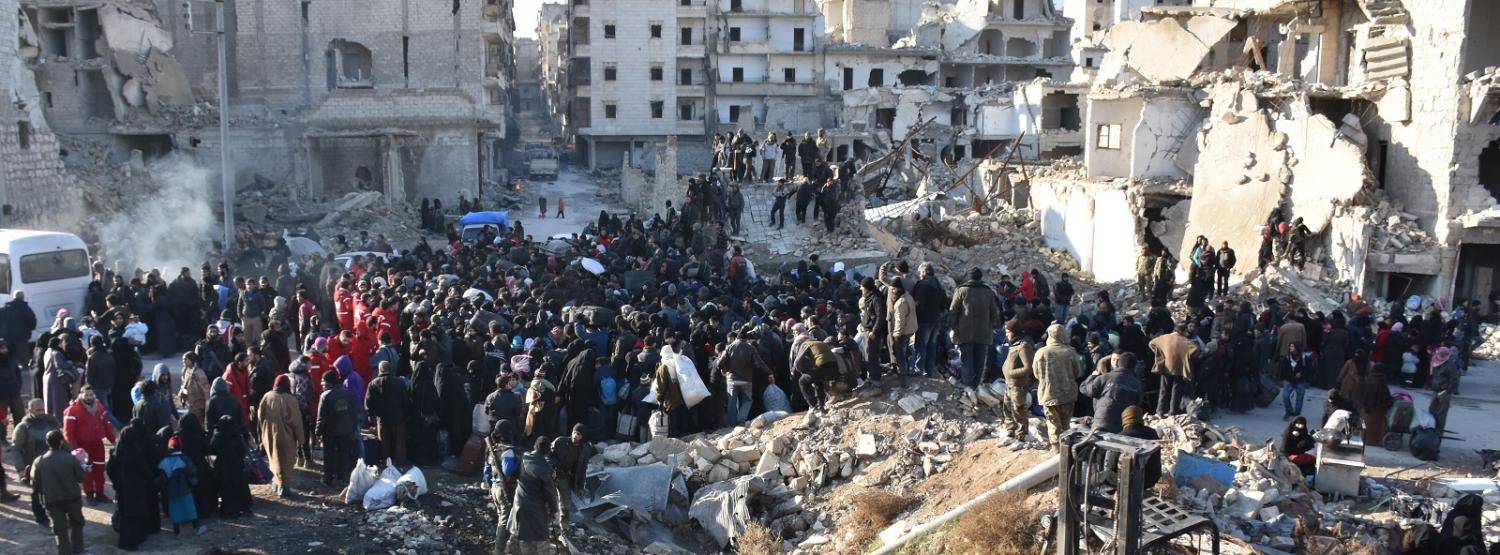In recent days as the tragedy of Aleppo unfolded, many commentators have asked why 'we' are standing aside and doing nothing. On Twitter particularly, it is revealing to ask what they would have ‘us' do. Most stay silent. The few that do reply talk vaguely of diplomacy and the UN. There are no practical answers.
Some call on ‘the West’ to the something they demand but cannot specify. By this, most mean the US which is used to such requests. But the US also has a very recent memory of the almost-total failure of its allies to carry much of the burden in Iraq and Afghanistan, or the ongoing burden in Libya. Many countries make contributions to the war in Syria but are not committed to an outcome, to winning. Like Australia, these nations tell themselves they are punching above their weight but in fact they are not even pulling their weight. If the US listened to the citizens of these allies who are calling on it 'do something' in Syria, it is unlikely any of those allies would assist.
We also hear frequently from commentators who state knowingly that there is no military solution to Syria, only a political one. We hear this even as we watch Assad, Russia, Iran, Hezbollah and various others carry out a very successful military solution against a plethora of rebel groups that are partially supported by the West, Turkey, Saudi and some Gulf States. It is certainly true there is certainly no military solution that is easy, casualty-free and produces quick results. What is really being debated though is the utility of the use of military force, especially in the way our leaders and societies perceive its use.
The Loyalists and their allies have successfully - and immorally - used military force to kill about 500,000 Syrians, badly wound a few million more and displace 11 million, half of whom have fled their country. The battle to drive the rebels out of Aleppo might be a turning point, an endpoint or of some other significance. Either way, those in the West devoid of ideas will watch it play out on the nightly news - like they watched battles in Beirut, Libya, Grozny, Kabul in the 1980s and the siege of Sarajevo in the following decade - and bemoan the fact that no one will do anything.
The military solution the loyalist forces and their allies have applied is immoral but it is also logical. Assad did not get it right to begin with. A year ago he was looking at defeat and humiliation. Now there is strategy that guarantees the regime’s survival in some form, at least in the short to medium term. The price will be some loss of sovereignty to Russia and Iran. If winning is defined as the achievement of the war aims, Assad has won or will win.
When lined up against the simplicity of the Assad strategy, the use of military force by the West in Syria has been pathetic and embarrassing over the last five years (except for the air attacks on ISIS to support the strategy in Iraq). There has never been a workable strategy. The desperate attempt to work diplomatically with Russia, not to solve the problem of Syria but to mitigate the consequences through ceasefires, confirms the powerlessness of the West. The single condition set - that Assad must go - has only strengthened Assad’s resolve at a cost of hundreds of thousands of Syrian lives.
Whatever the question is, the answer is normally strategy. But a military strategy must include a logical link to operational actions and adequate resourcing. Assad, Putin and the Ayatollah know this. If we act - and I am not advocating it - then we need to do so in line with a strategy that is operationally achievable, appropriately resourced, and with a full understanding the risks.
Of course there is no military solution to the Syrian problem for the West. There is a role, however, for military force to bring about the conditions for a political solution, but our side has applied force about as well in Syria as it did initially in Iraq, in Libya and possibly Afghanistan.
Unless the West can find a logical military strategy it is prepared to implement, it should not prolong the conflict. It should refuse support to rebels to stop the killing of Syrians as soon as possible. By supporting disparate rebel groups, we run the risk of participating in an immoral war by prolonging one which cannot be won.
